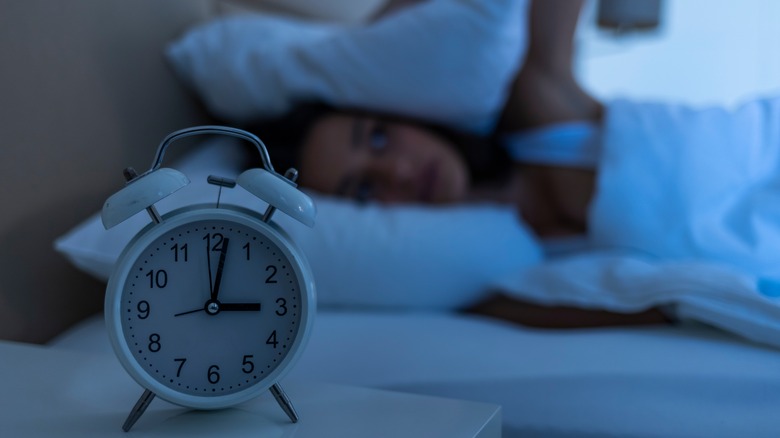When Should You See A Doctor For Insomnia?
Insomnia is a sleeping disorder that affects your ability to fall asleep or have a good night's rest (via Mayo Clinic). Healthy adults need at least seven to eight hours of sleep every night. However, insomnia causes sleep disturbances that could make you spend most of your nights tossing and turning in bed. Without sufficient rest, most adults tend to still feel tired throughout the day, ultimately affecting their overall quality of life.
In fact, a 2018 study published in the Journal of Clinical Sleep Medicine found that around 30% to 48% of older adults in the U.S. are affected by insomnia. But the differences didn't stop there. A 2016 study published in the Philosophical Transactions of the Royal Society also discovered that women are 40% more likely to have insomnia than men. Normally, there can be many reasons for one's inability to sleep throughout the night, such as not having a proper sleep schedule, using electronic devices before bedtime, and various diseases, such as diabetes, and cancer, per Healthline. However, with the proper treatment, you may be able to regain your lost sleep.
When should you consult an expert for insomnia?
It's essential to seek treatment for insomnia at the right time to avoid being sleep deprived and compromising your overall wellbeing. For this purpose, you may want to monitor your symptoms. According to WebMD, you may want to seek professional guidance if you notice that you've been sleepless for more than four weeks. It's important to get treated immediately, especially if your lack of sleep is affecting your work and personal life.
You may also want to consult a doctor if you snore too loudly or wake up suddenly gasping for air, which may indicate signs of sleep apnea, suggests Healthline. It's best to seek referrals from your primary care physician when looking for a professional sleep specialist. Before deciding on a specialist, take a moment to check what other patients have to say about them and what their experience was. You can also check out accreditation organizations, like the American Academy of Sleep Medicine, to find popular sleep healthcare centers.


